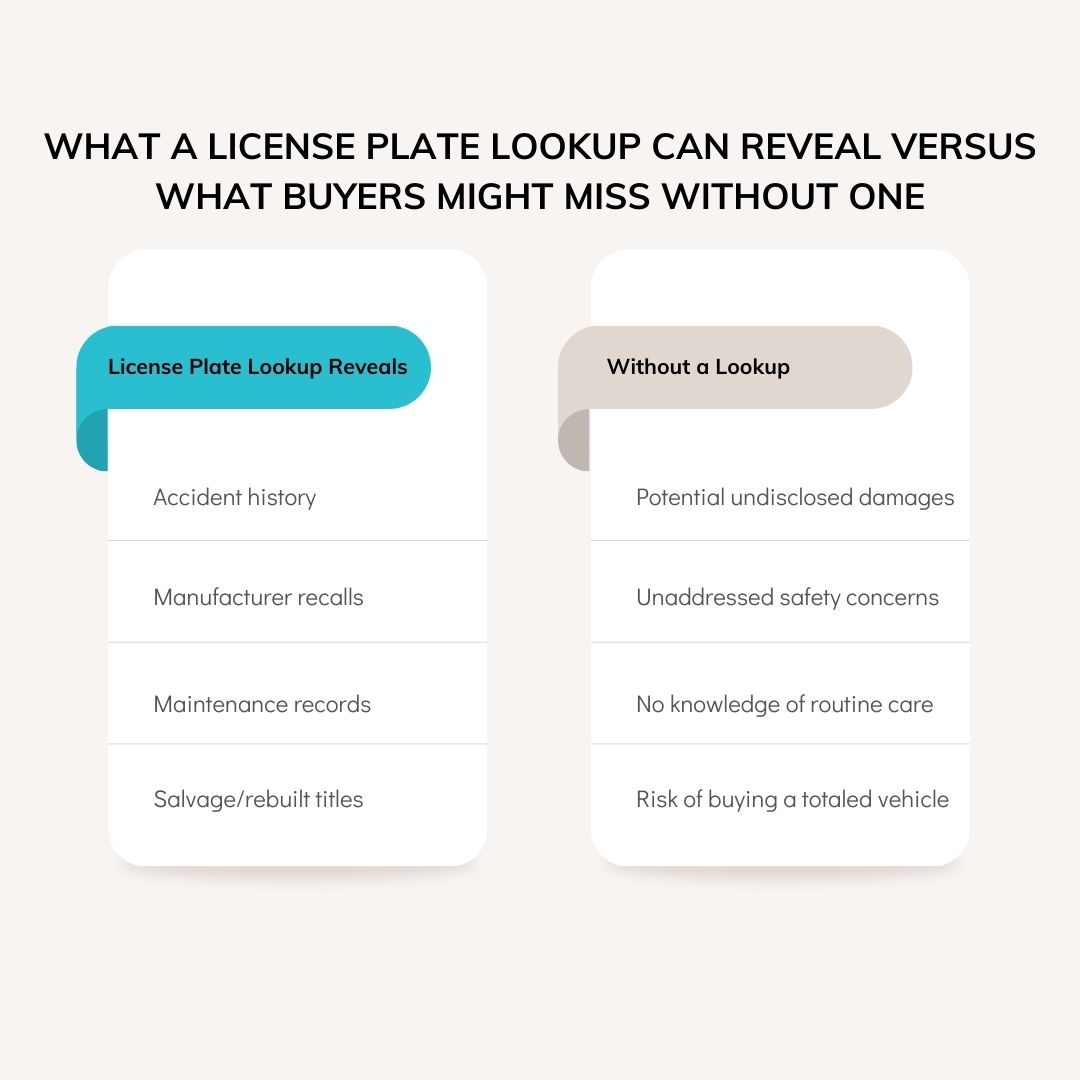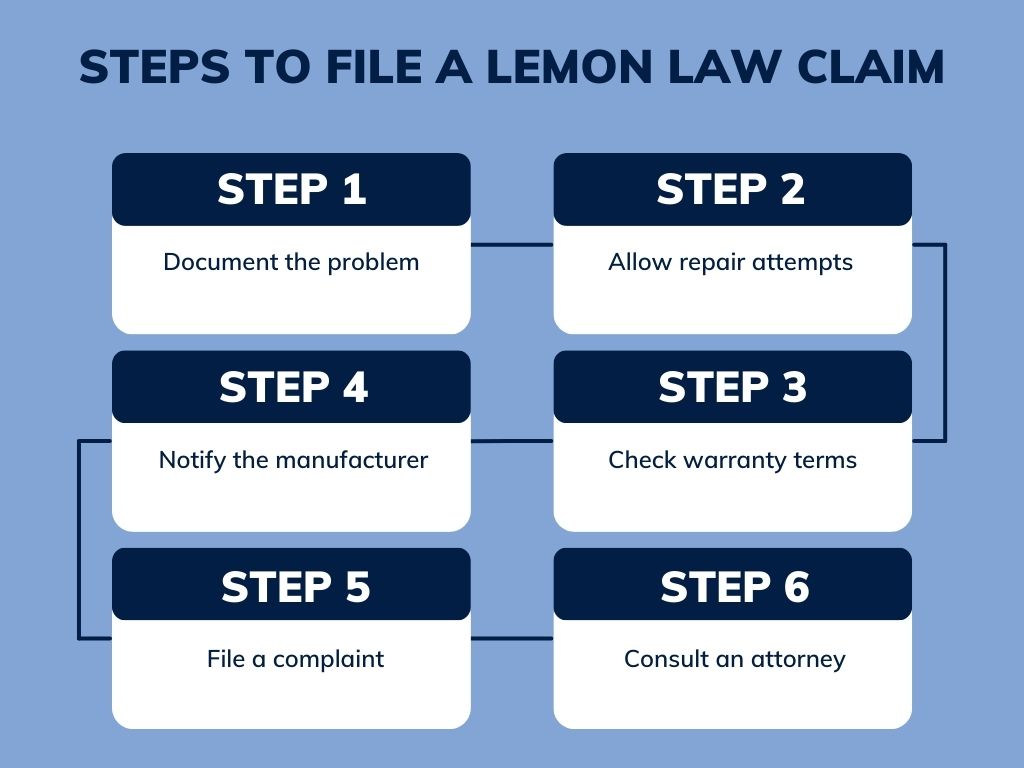Buying a used car can be an exciting step toward greater independence, but it’s not without its risks. Hidden issues, unexpected breakdowns, and costly repairs can quickly turn that dream ride into a nightmare. Fortunately, Wisconsin’s lemon laws offer protection for consumers dealing with defective vehicles. Understanding these laws can help you make informed decisions and assert your rights as a car buyer.

In this article, we’ll explain how Wisconsin’s lemon laws apply to used cars, how tools like a Wisconsin license plate lookup can help identify potential issues, and the steps to take if you need to pursue a lemon law claim.
What Are Wisconsin’s Lemon Laws?
Wisconsin’s lemon laws were designed to protect consumers who purchase or lease new vehicles that turn out to be defective. While these laws primarily focus on new vehicles, there are certain protections for used car buyers as well. If a used car is still under the original manufacturer’s warranty or sold with an extended warranty, it may qualify for lemon law protections if it exhibits significant defects.
Under Wisconsin’s lemon laws, a car is considered a “lemon” if:
- It has substantial defects that impair its use, value, or safety.
- The manufacturer or dealer cannot fix these issues after a reasonable number of repair attempts.
For used cars, the key factor is whether the defects occur while the vehicle is still covered under a warranty. This means that as a buyer, it’s crucial to check the terms of any existing warranty when purchasing a used car.
How a License Plate Lookup Can Help Identify Lemon Law Issues
Before you purchase a used car, taking proactive steps to uncover its history can save you from future headaches. One useful tool is a license plate lookup. By using this resource, you can access valuable information about a car’s past, including:
- Accident history
- Manufacturer recalls
- Maintenance records
- Salvage or rebuilt titles
This information can help you spot potential red flags that may indicate a car could qualify as a lemon. For example, if a free license plate search reveals recurring repairs for the same issue or unresolved recalls, you might reconsider purchasing the vehicle.

Additionally, understanding a car’s history helps you negotiate better terms or ensure that any necessary repairs are completed before the sale. Check your car’s history with our Wisconsin License Plate Owner Lookup Tool to gain deeper insights and make an informed decision.
Steps for Pursuing a Lemon Law Claim in Wisconsin
If you’ve purchased a car in Wisconsin and believe it qualifies as a lemon, follow these steps to pursue a claim:
1. Document the Problem
Keep detailed records of the issues you’re experiencing with the car. This includes repair invoices, service records, and communication with the dealer or manufacturer. Wisconsin’s lemon laws require proof that the vehicle’s defects substantially impair its use, value, or safety.
2. Provide the Manufacturer or Dealer a Chance to Repair
Wisconsin law gives the manufacturer or dealer a reasonable number of attempts to fix the problem. Typically, this means at least four attempts for the same defect or 30 days out of service due to repairs. Ensure you allow the dealer sufficient opportunity to address the issue before pursuing legal action.
3. Review Warranty Terms
Check the warranty terms to confirm coverage and determine whether your vehicle is still eligible for lemon law protections. If your car was purchased with an extended or transferrable warranty, it may still qualify for coverage.
4. Notify the Manufacturer in Writing
Before escalating the issue, send a written notice to the manufacturer detailing the problems with the car. This letter should include specifics about the defect, repair attempts, and why you believe the vehicle qualifies as a lemon. Be sure to send this correspondence via certified mail to confirm receipt.
5. File a Lemon Law Complaint
If the manufacturer or dealer fails to resolve the issue, you can file a formal complaint with the Wisconsin Department of Transportation (WisDOT). They can provide guidance on mediation or arbitration options to resolve the dispute.
6. Consult an Attorney
If mediation efforts fail, consider consulting a lemon law attorney. They can help you navigate the legal process and advocate for your rights in court, ensuring you receive a fair resolution.

Protect Yourself When Buying a Used Car in Wisconsin
Understanding your rights as a consumer is essential when buying a used car. While Wisconsin’s lemon laws may seem complex, they are there to protect you from defective vehicles and unethical practices. To minimize your risk:
- Always check the car’s history with a license plate lookup.
- Have a trusted mechanic inspect the vehicle before purchase.
- Confirm whether the car is still under warranty and review the terms carefully.
By taking these steps, you can avoid potential pitfalls and ensure your investment is a sound one.
Final Thoughts
Wisconsin’s lemon laws offer valuable protections for used car buyers, especially when issues arise that significantly impact a vehicle’s safety or value. By leveraging tools like a license plate lookup, you can uncover potential problems and make informed decisions before finalizing a purchase. If you do end up with a lemon, knowing the steps to file a claim can help you resolve the issue and recover your investment.
Check your car’s history with our Wisconsin License Plate Owner Lookup Tool to start your journey toward a safe and reliable ride. Don’t leave your car-buying experience to chance—be proactive and informed!